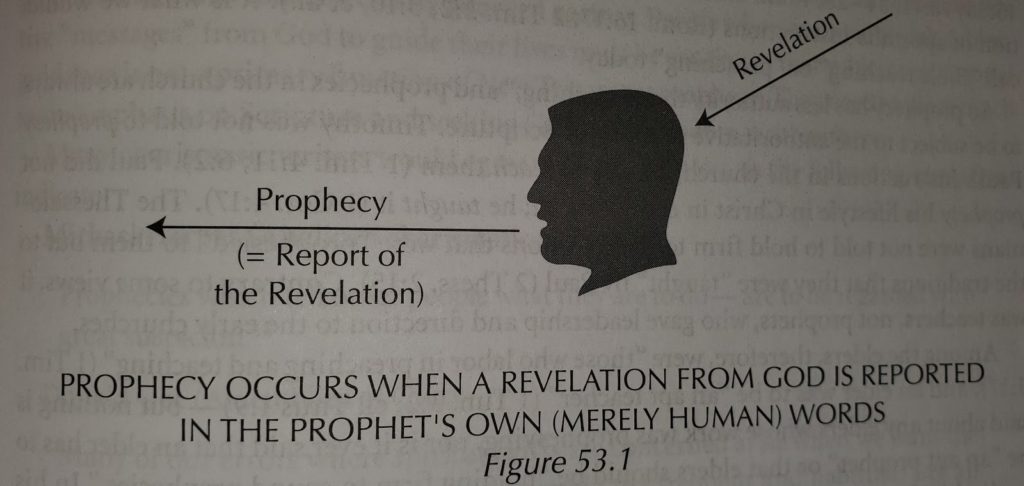Reading Systematic Theology with Wayne Grudem – How should we understand and use specific spiritual gifts?
This post is part of a 50+ post series from the classic work by Wayne Grudem (PhD, Cambridge), Systematic Theology: An Introduction to Biblical Doctrine. The aim of each post is to provide an overview of each chapter in the book and related resources for each topic.
Synopsis of Chapter
In his second chapter on the gifts of the Holy Spirit, Wayne Grudem covers more specifics on the spiritual gifts. Grudem reviews seven gifts including prophecy, teaching, miracles, healing, tongues and interpretation, word of wisdom/word of knowledge, and distinguishing between spirits. Grudem presents a continuationist perspective in this chapter as opposed to a cessationist perspective. He believes in “continualism” or that these spiritual gifts continue in some measure as they did during the first century as opposed to “cessationism” that these gifts ceased around the end of the first century.
Prophecy
The first spiritual gift to review is prophecy. Prophecy can be defined as “telling something that God has spontaneously brought to mind”. There seems to be a new kind of prophet that God introduced during the New Testament age. This is likely because the word “prophet” had a more expansive definition during the 1st century than when the Old Testament was being penned (see Titus 1:12). So New Testament prophets are not at the same level as Old Testament prophets – instead, New Testament Apostles are more akin to Old Testament prophets. Like the Old Testament prophets, it was the Apostles that had the authority to write Scripture (1 Thessalonians 2:13).
New Testament prophecies were not held to the same level of authority as Scripture. For instance, in Acts 21:4 – Paul disobeyed a prophecy, something an Apostle would likely not have done. Paul also told the Thessalonians not to despise prophesying but to test them (1 Thessalonians 5:20-21). This kind of instruction does not put prophecies at the same level as Scripture. Instead, New Testament prophecies were more like impressions from the Holy Spirit, but filtered through the minds and words of fallible humans – see illustration below.

Teaching
A second spiritual gift is that of teaching: “the ability to explain Scripture and apply it to people’s lives.” Teaching is often based on Scripture as Paul reminded Timothy “All Scripture is breathed out by God and profitable for teaching” (2 Timothy 3:16). Teaching repeats and explains the Bible and applies it to the hearers lives. And churches are to hold fast to those things taught by Paul and his companions (2 Thessalonians 2:15). So teaching is in a different category than prophecy and is more authoritative so long as it aligns with Scripture.
Miracles
Another spiritual gift explained in the New Testament is miracles or “any kind of activity where God’s power is evident.” This could include answers to prayer for deliverance (Acts 5:19-20), powerful works of judgment in the church (Acts 5:1-11), miraculous deliverance from injury (Acts 28:3-6), and more. Miracles appear to be a category of unusual activity where God’s work points people to himself.
Healing
Still another spiritual gift is healing. Sickness started at the Fall of Man, but Christ began to reverse the curse when he redeemed us. When Jesus healed people, Matthew wrote a prophecy was fulfilled, “This was to fulfill what was spoken by the prophet Isaiah: “He took our illnesses and bore our diseases.” (Matthew 8:17). Just as Jesus healed in his ministry, healing is one of those gifts given by Christ to his church.
There are several biblical principles to bear in mind when considering the gift of healing:
- We should trust the Lord for healing more than doctors. (2 Chronicles 16:12-13).
- Healing can happen after laying on of hands and anointing (James 5:14).
- We don’t get healing sometimes because we don’t ask for it (James 4:2).
- Not everyone will be healed from their sicknesses (2 Corinthians 12:7).
- We should seek the Lord when doctors cannot help (Luke 8:43-44).
- God can use sickness to improve our sanctification (Romans 8:28).
- We can use medicine in connection with prayer (2 Kings 20:7).
- It is good to pray for people to be healed (3 John 2).
Tongues and Interpretation
Tongues and interpretation are other spiritual gifts given to the church. The sign of tongues first happened at the beginning of Acts when the early followers of Jesus, being from different regions of the world, testified “each of us in his own native language?” (Acts 2:8). So an aspect of the gifts implies that some speak a language that they did not naturally learn.
However, there appears to be another aspect of the gifts of tongues that is an unknown language to anyone. This can be defined as “a prayer or praise spoken in syllables not understood by the speaker.” Paul had this gift of tongues (1 Corinthians 14:15), but not everyone had the gift (1 Corinthians 12:30). So sometimes the gift of tongues is in a known language (Acts 2:6) and other times it is not (1 Corinthians 14:19). Since some speaking in tongues can be unknown, and we should aim to build up the church, Scripture encourages us to interpret the tongues as well (1 Corinthians 14:5).
Word of Wisdom/Word of Knowledge
Other gifts are the “word of wisdom” and the “word of knowledge” (1 Corinthians 12:18). First Corinthians 12 is the only passage that mentions these gifts. These words may be related to miraculous revelation in a non-biblical sense or regular type wisdom and knowledge given to believers. In either case, it’s difficult to discern exactly what these gifts are given the scant available Scriptures that mention them.
Distinguishing Between Spirits.
The final spiritual gift in the above list of gifts is the distinguishing between spirits (1 Corinthians 12:10).This can be defined as “a special ability to recognize the influence of the Holy Spirit or of demonic spirits in a person.” Indeed, we live in a spiritual universe. Paul wrote of some being “led astray to mute idols” (1 Corinthians 12:2) and John instructed believers to “test the spirits to see whether they are from God” (1 John 4:1). The authors of the New Testament recognized a “spirit of infirmity” (Luke 13:11), a “spirit of divination” (Acts 16:16), and more. In essence, it’s a spiritual gift to be able to discern between various spirits that are not from God.
Application: The Bible Speaks of Spiritual Gifts
Perhaps the most important application to make related to spiritual gifts is the Bible addresses them. If we are to take the Bible seriously, we too should investigate, seek, and use our spiritual gifts when appropriate. God gave them to us for a reason: namely to build up the church (1 Corinthians 14:12). May we all use our gifts to build up the church for his glory.
“To each is given the manifestation of the Spirit for the common good. For to one is given through the Spirit the utterance of wisdom, and to another the utterance of knowledge according to the same Spirit, to another faith by the same Spirit, to another gifts of healing by the one Spirit, to another the working of miracles, to another prophecy, to another the ability to distinguish between spirits, to another various kinds of tongues, to another the interpretation of tongues. All these are empowered by one and the same Spirit, who apportions to each one individually as he wills.” (1 Corinthians 12:7-11)
Special Terms
- apostle
- cessationist
- distinguishing between spirits
- gifts of the Holy Spirit
- healing
- interpretation of tongues
- miracles
- miraculous gifts
- nonmiraculous gifts
- office
- prophecy
- speaking in tongues
- teaching
- word of wisdom
- word of knowledge
Resources: Wayne Grudem
- Wayne Grudem: Book: Systematic Theology: An Introduction to Biblical Doctrine
- Wayne Grudem: 148 Lectures on Systematic Theology
Related Resources
- OpenBible.info: Verses on Gifts of the Holy Spirit
- Brannon Deibert: What are the Gifts of the Holy Spirit?
- Sam Storms (continuationist): Spiritual Gifts Video on Desiring God (17:46)
- Thomas Schreiner: Why I Am a Cessationist
Image credit from Leone Venter on Unsplash.








